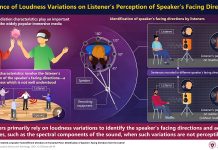
In a new study, researchers found that artificial intelligence could predict who is most likely to die from the coronavirus.
In doing so, it can also help decide who should be at the front of the line for the precious COVID-19 vaccines.
The research was conducted by a team at the University of Copenhagen.
Since the COVID-19 pandemic’s first wave, researchers have been working to develop computer models that can predict, based on disease history and health data, how badly people will be affected by COVID-19.
In the study, the team used patient data from the Capital Region of Denmark and Region Zealand.
They fed a computer program with health data from 3,944 Danish COVID-19 patients.
This trained the computer to recognize patterns and correlations in both patients’ prior illnesses and in their bouts against COVID-19.
They found that artificial intelligence can, with up to 90% certainty, determine whether an uninfected person who is not yet infected will die of COVID-19 or not if they are unfortunate enough to become infected.
Once admitted to the hospital with COVID-19, the computer can predict with 80% accuracy whether the person will need a respirator.
The team also found that age and BMI are the most decisive parameters for how severely a person will be affected by COVID-19.
But the likelihood of dying or ending up on a respirator is also heightened if patients are male, have high blood pressure or brain disease.
The diseases and health factors that, according to the study, have the most influence on whether a patient ends up on a respirator after being infected with COVID-19 are in order of priority: BMI, age, high blood pressure, being male, neurological diseases, COPD, asthma, diabetes and heart disease.
The team says for those affected by one or more of these parameters, it may make sense to move them up in the vaccine queue, to avoid any risk of them becoming infected and eventually ending up on a respirator.
They hope that artificial intelligence will soon be able to help the country’s hospitals by continuously predicting the need for respirators.
One author of the study is Professor Mads Nielsen.
The study is published in Scientific Reports.
Copyright © 2021 Knowridge Science Report. All rights reserved.



